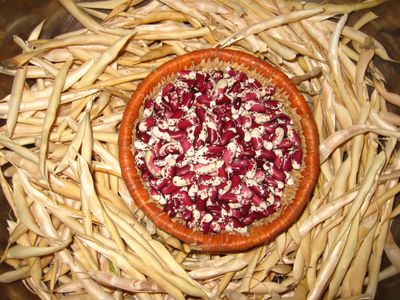A toast to gardening season

Hasn’t this fall weather been beautiful lately? That makes it difficult to consider putting our gardens to bed and even harder for me to wrap up this column for the season. But the time has come.
So far this year, I’ve covered topics like seed-starting, composting, soil preparation, organic gardening methods and how to grow many different types of cool and warm season crops.
Many readers have taken the time to write me during this growing season. Of all the topics I wrote about, there were two that generated the most responses. The first was on raised-bed gardening. I’ve used raised beds for more than 20 years and can’t say enough good things about them. It has been gratifying to learn that many gardeners are interested in using this method, and it’s exciting to witness a heightened awareness in the importance of growing our own food.
The other hot topic was dealing with critters in the garden. In my own garden, I regularly encounter pocket gophers, cottontails, deer and quail that love to nibble on seed sprouts and greens. Those seem like enough challenges to drive any gardener crazy but I learned many readers have to deal with squirrels, raccoons and wild turkeys as well. It takes a determined gardener to persevere, and even triumph, in the face of so many obstacles.
One of the high points of writing this column has been visiting with the gardeners I’ve profiled this summer. We can all learn from those who have a lot of experience. Here are some nuggets of wisdom I’ve picked up from them:
Organic farmer Dave Swett taught me the importance of building healthy, productive soil. With that in mind, I’ve ramped up my efforts to produce good compost and add plenty of organic materials to my raised beds from now on. He also emphasized the importance of breaking the cycle of harmful insects – through hand-picking or the use of organic products – to prevent future problems.
Liberty Lake gardeners Mark and Jane Bitz taught me to gracefully accept when things don’t go according to plan. We all face a lot of challenges – some years more than others – but the Bitzes feel that if plants get frosted or harvests are less than stellar, it’s okay. Hopefully they also inspired us to grow some unusual varieties of veggies next year and to consider using cold frames to extend the season.
St. George’s teacher Kim Hoover underscored the importance of monitoring what’s going on in the garden daily and to savor the peacefulness of gardening. She turned me on to the Grow Biointensive farming methods fostered by the Ecology Action group to make our gardens more productive. You can visit their Web site, www.bountifulgardens.org, to learn more.
Green Bluff orchardists Steve and Marie Cole showed us it is possible to grow tree fruits without using harmful chemicals. They also got me excited about growing some great winter squash varieties like Sweet Meat, Delicata and New England Blue Hubbard.
More than anything, all of these gardeners demonstrated that hard work, determination, flexibility and enthusiasm are the secrets to raising a successful garden.
If this was your first attempt at growing your own food, bravo! I hope it was a rewarding experience. Even if things didn’t go as well as you would have liked, the learning process is invaluable. If you are a seasoned vegetable gardener but you picked up a few things from this column, or if you learned some new tricks by putting a little extra effort into this year’s garden, that is wonderful. In the coming weeks, I will start tackling some new gardening topics.
Susan Mulvihill can be reached via e-mail at inthegarden@live.com. The In the Garden column will return